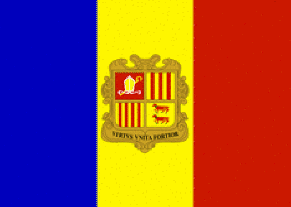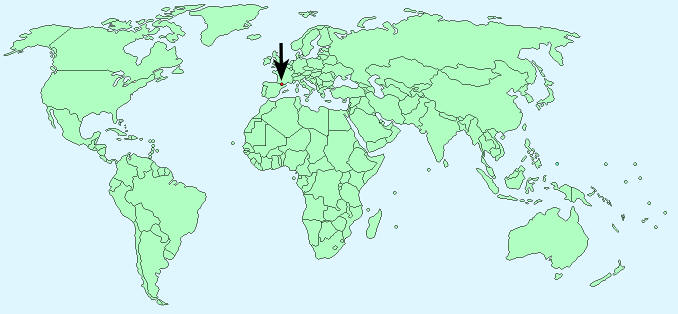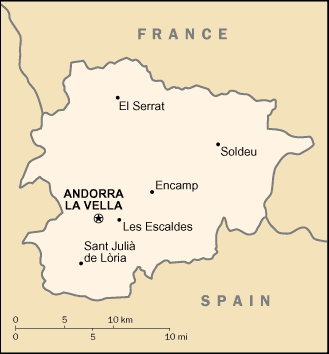Andorra


Continent – Europe
Region – Western Europe
Size – 468 km²
Geography – Mountainous
Language – Catalan, Spanish, French
Religion – Roman Catholic
Monetary Unit – Euro
Natural Resources – Timber, mineral water, iron ore, lead
Agriculture – small quantities of rye, wheat, barley, oats, vegetables, sheep
Industry – tourism (particularly skiing), cattle raising, timber, banking, tobacco, furniture

Neighbouring Countries – France, Spain
Population – 85,458 (2014)
Population Growth Rate – 0.8%
Average Life Expectancy – 83.5
Capital City – Andorra la Valla (population 22,256)
Highest Mountain – Cona Pedrosa (2,946 m)
Longest River – Valira (679 km)
Climate – Warm summers 6° C to 14° C and cold snowy winters -1° C to 8° C
Yearly Rainfall – 80 cm approx
Plant Life – Pine, fir, oak, alpine plants, carnations, violets, bellflowers, daisies, blackberries, wild strawberries, moss
Animal Life – Bear, wolf, fox, marten, Pyrenean chamois, rabbit, hare
Bird Life – eagle, vulture, wild duck, and goose
Aquatic Life – trout, brochet, and crayfish
Harvard Reference for this page:
Heather Y Wheeler. (2015). Andorra. Available: https://www.naturalhistoryonthenet.com/Facts_Figures/Country_Facts/andorra.htm. Last accessed Monday, July 18, 2016
Facts and Figures Pages
